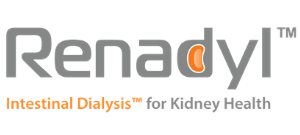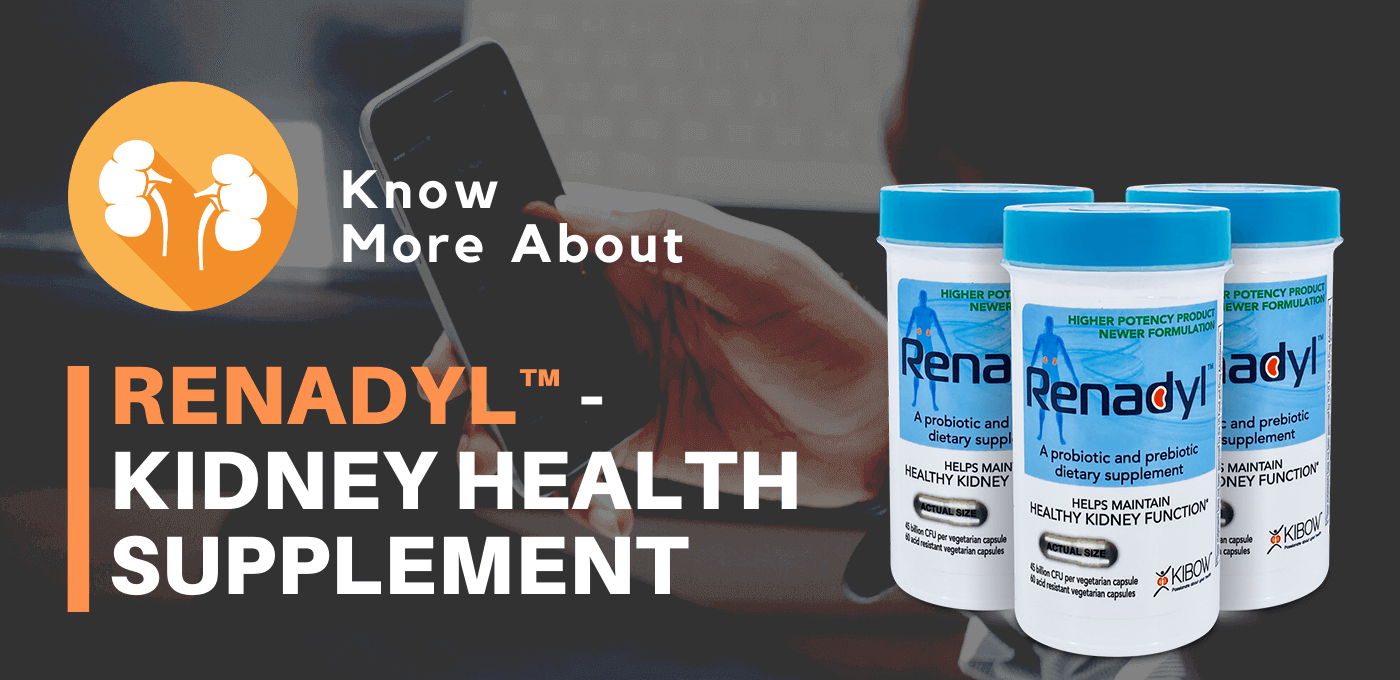
- Home
- /
- Kidney Health
- /
- The Importance of Your Intestine in Kidney Inflammation
The Importance of Your Intestine in Kidney Inflammation
Article posted in:
Kidney Health
Editor’s Note: Our intestine is a vital organ in digestion and absorption. However, not many people know that they play an important role in maintain healthy kidneys too. In this post, our guest blogger Dr.Rich Snyder explains the relationship between your kidneys and intestines, and explains how the use of probiotics such as Renadyl™ enter the picture to help maintain healthy kidneys. This information is for informational and educational purposes only.
Kidney Problems, a Growing Concern
Chronic Kidney Disease (CKD) affects approximately one in every eight individuals, or about 31 million individuals. This number is likely an underestimate as I believe many more remain underdiagnosed. With the increasing number of our younger generation being diagnosed with diabetes, hypertension, and the obesity epidemic affecting one in every three individuals, those with kidney disease being diagnosed at a younger age. These numbers scare me, especially for the youth of America. High or uncontrolled blood sugar and high blood pressure remain the most common causes of kidney disease in North America.
Intestinal Health
In addition to controlling blood glucose levels and normalizing blood pressure, what else can we do to help prevent worsening or even improve your kidney health? The key is to reduce inflammation. I believe that kidney ailments are due to a process of inflammation and one of the keys to reduce the inflammation is to improve the health of the intestine.
What does the intestine have to do with kidney health? A lot, actually! In a recent article from Kidney International (published June 2013), the authors discussed how the buildup of uremic toxins in the body can change not only the structural integrity of the intestine, but also promote systemic inflammation.
The Intestine and Toxins
Be aware that the formation of these “uremic toxins” can occur in moderate stage kidney disease. Picture the cells of the intestine like a picket fence, with each of the posts rooted in the ground and attached to one another. The toxins in the intestine can not only cause many of the posts to separate from one another, but also may even cause some of them to uproot from the ground. This is likely an oversimplification, but you get the idea.
The functions of the small intestine are absorption and protection. With the separation of these fence posts (intestinal cells) from one another,a significant aspect of the protective barrier of the intestine is lost. The uremic toxins are able to “escape” into the blood stream and trigger an inflammatory response. For patients with kidney disease, this happens on a sustained basis causing a continued inflammatory response. Add into the mix other things that can affect intestinal health: the overuse of antibiotics, the nutrient poor pro-inflammatory Western diet, psychological and physical stress, Candida overgrowth of the intestine… All are promoters of a “leaky gut” and systemic inflammation. This is why I believe that using probiotics like Renadyl™ will give hope to people with kidney problems and why improving intestinal health is going to be key to lowering systemic inflammation and improving our total body health.
About Dr. Snyder
Works Cited
(1) Anders, H.-J. (2013, July ). The intestinal microflora, a leaky gut, and abnormal immunity in kidney disease. Kidney International, 1-7.
Categories
Recent Posts
- Check out these Live Testimonials, thanks to Steve the Kidney Nurse February 15, 2022
- Kidney Friendly Infused Water August 20, 2020
- Is salt bad for the kidneys? August 12, 2020
- Drinking Water With Kidney Problems August 7, 2020
- What is Renadyl Used For August 5, 2020
Recent Comments
- Kibow Biotech on Drinking Water With Kidney Problems
- Santos Gonzalez on Drinking Water With Kidney Problems
- James F Hawkins III on Drinking Water With Kidney Problems
- Loretta on Kidney-Friendly Dessert
- Leo on Kidney-Friendly Summer Meal



Comments
Leave a Comment